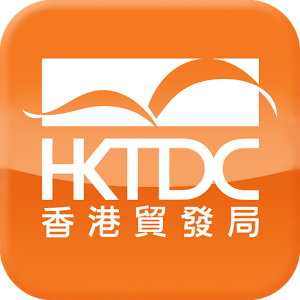7 September 2017 – Watchmakers who have established themselves in the global market for many years are being forced to re-evaluate their ideals and branding strategies while trying to embrace new technology posed by the growth of smart watches. These trends and technological developments were discussed on 6 September during the Asian Watch Conference at the HKTDC Hong Kong Watch & Clock Fair at the Hong Kong Convention and Exhibition Centre (HKCEC).

With the theme “Smart Movement in Time,” the conference aimed to enlighten attendees on the impact of smart watches in the market and how traditional companies are rising to the challenge of manufacturing watches that cater to modern needs.
Connecting devices
Philip Wong, Vice President of Technical, Swissam Products Ltd, Movado Group Inc, said the smart watch revolution posed a major challenge for Movado, which was formed in 1881 and is known for its classic Museum Watch, launched in 1947.
It was not until 2014 that Movado launched a smart watch, according to Mr Wong. “Movado was making luxury mechanical watches, and of course, analogue watches and we never thought that we would ever do smart watches.
“A question was brought up some years ago about the trend of smart devices in the watch industry. Is this an opportunity or do we just let it go? We did start to look at the market and we realised that, in our definition of a smart watch, it is something that could interact and connect with other devices, from a customer perspective and that is how we proceeded.”
Mr Wong said that Movado’s move into the smart watch market was a bold one and that the company is now collaborating with Internet giant Google to enhance platforms that would benefit its customers.
Combining expertise
Sara Chung, Project Manager, Teamwork Automation Co Ltd, is the third generation of a family business based in the Chinese mainland’s city of Shenzhen, known for its Taiwanese Taylor watch brand. The company has a long history in watch-making. She said that watchmakers are facing enormous pressure from the electronics industry that produces smart devices. But she added that the companies must stay faithful to their roots, which is to make watches, not electronic products.
Ms Chung quoted her company’s market research, which indicated that smart watch sales suffered a significant drop in 2016 after peaking in 2015 and that there was a 30 per cent abandonment rate in which customers stop using smart watches after a certain time.
“One of the reasons for the high abandonment rate is that customers actually buy the watch for its functions. The problem, however, is that technology always change and then you have to change the watch for the new functions. The lifespan of this product is short.” said Ms Chung.
However, she is confident that smart watches will thrive in the future, maybe involving technology that has yet to be developed. “We think that smart watches of the future will develop a new type of movement. It will probably not even be called ‘smart’. It might have a new definition.”
Added security
Protronix International is a Hong Kong-based manufacturer, exporter and retailer of timepieces that continues to make analogue watches enhanced with smart technology. Company CEO Malcolm Ong said that a major part of his company’s success is its commitment to provide upgraded software and value-added customer service. He said one of the most important aspects of a smart watch is ensuring that apps are updated regularly
“The maintenance of apps is one of the most important factors for success,” said Mr Ong. “When a Samsung model was launched in December 2016, they then upgraded the model and the Android app was completely rewritten, so the watch you were using in 2016 doesn’t work anymore because of the upgraded app. This is where our strength is.
“We buy new phones in the market on a monthly basis to make sure the app is updated. The second thing is customer service. Customers can call our service and we can guide you along to make sure the watch works and also use cloud service to update. A smart watch is not a smart watch unless the app is updated and we are very strong in that.”
Mr Ong said he expected future smart watch functionality to play an important role in security-related applications. “We will continue to cooperate with lots of different companies with security being one of the most important factors,” said Mr Ong. “We will work with security companies on motion- sensor detectors, cameras for home and indoors, and other functions.
“If someone breaks into your home, it will be indicated in the watch and you can then go to your cell phone to find out exactly what is happening.”
About the HKTDC
Established in 1966, the Hong Kong Trade Development Council (HKTDC) is a statutory body dedicated to creating opportunities for Hong Kong’s businesses. With more than 40 offices globally, including 13 on the Chinese mainland, the HKTDC promotes Hong Kong as a platform for doing business with China, Asia and the world. With 50 years of experience, the HKTDC organises international exhibitions, conferencesand business missions to provide companies, particularly SMEs, with business opportunities on the mainland and in international markets, while providing information via trade publications, research reportsand digital channels including the media room.
